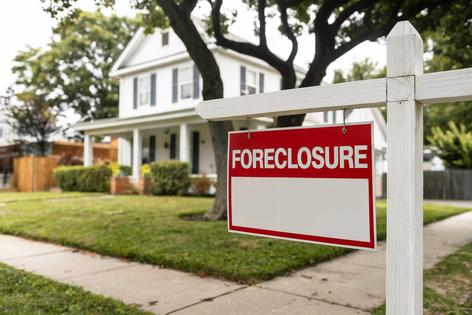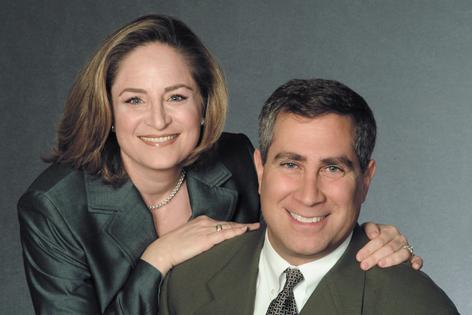Potential homebuyer loses out on purchase due to foreclosure
Q: I’m ignorant of real estate law, so this may be off base. Maybe you can tell us if we’re correct to be angry.
My son moved back to Virginia last year. He was preapproved for a loan, got a real estate agent, and began looking at homes. Over a three-month period he looked at maybe 30 homes. He made several offers but was not successful.
The one he liked best was owned by an unmarried couple who were splitting up. According to his agent, the man accepted the offer, but the woman did not. Fast-forward about two weeks and his agent said the couple reconsidered and wanted him to resubmit his offer, which he did. The offer was accepted, a contract was signed, and he paid earnest money. He also paid for a home inspection and several lender fees.
Three weeks go by. A closing date is set. His agent calls one day and says the home is going into foreclosure and there’s nothing she can do. The bank schedules a foreclosure sale, buys the home for a ridiculous price since they’re the only bidder, and now also owns the home and can sell it for even more money.
This seems, to an average consumer, like dirty dealings. At a minimum it seems unethical. Are we off base to feel as we do, or is this the way the real estate market works and the banks profit?
A: We feel your son’s pain. But sometimes the homebuying process just doesn’t work out as you might want or expect. We understand how frustrated you and your son might be at the process and how it worked out for him.
We don’t think that you should vent your frustrations on the bank. The bank didn’t do anything other than protect its interests. When a homeowner fails to make payments on their loan, the lender has to step in.
On top of that, your son got caught up in the middle of a relationship gone bad. We see this happen frequently. When people divorce (or, in this case, split up) neither spouse ends up paying the mortgage. The interactions between the spouses or partners are so negative that they’d rather lose the home than figure out how to work together to keep it. So, it’s interesting that they came back to your son and tried to sell him the home.
Apparently, the owners of the home didn’t have a good sense of what their lender was going to do once they stopped paying their mortgage. Or, they thought they could get the home sold and closed before the lender foreclosed. Unfortunately, the sellers’ timing was off and your son lost out.
It’s also interesting that your son’s real estate agent hadn’t warned him the home was in foreclosure. Your son’s agent knew the sellers were splitting up. In many, if not most, foreclosure situations, real estate agents can look up properties through their systems to see what properties are in foreclosure or pre-foreclosure.
Once a contract for the sale of the home is signed, the homebuyer usually receives a title report on the target home. If the sellers are in foreclosure, the title report will frequently pick up on the foreclosure. Did your son get this information, and if so, when? It might not have mattered if he received it too late to avoid spending money applying for his loan and inspection.
In states where the foreclosure process is expedited, it might be hard to get the information on the foreclosure unless the agent for the buyer is savvy enough to think about the issue. Then, the agent could check to see if the sellers were in a pre-foreclosure situation. Having said that, we’re not saying the agent should have known but many agents do ask specific questions when listing a home if there is a divorce or separation. Typically, you’re confirming showings with two schedules, so they need to know more than in a more standard sale.
Even with all those questions and preparations, sometimes things just don’t go right. And, buyers get stuck. Once your son found out about the foreclosure, he could have insisted that the sellers talk to their lender and request an extension of time to allow the closing to take place. More communication between all the parties (brokers, buyers and sellers) could have helped.
What we don’t know, however, is whether the sellers owed more money on the home than what they would have gotten from the sale. When a seller owes more than what they’d get from selling the home to your son, the sellers will be short of funds to pay off the lender. At that point, the lender would and could decide whether to let the transaction move forward with your son or simply decide to foreclose on the home.
Once a lender forecloses on a home, the lender is free to sell the home on the market. You say that the lender would make money and sell it for more than what your son was willing to pay. That tells us that there is something wrong with the pricing for the home in the first place. It would seem that the sellers would try to get as much out of the home as possible. In some cases, sellers may try to sell the home as quickly as possible and underprice the home to get it sold.
Where a home is underpriced, we can see why and how the lender could foreclose and then list the home at a higher price. That higher price does not mean that the lender makes more money or is taking advantage of buyers. We don’t know how much money the lender was owed by the sellers and we don’t know if the lender will make any money from the sale of the home.
The sellers might have missed a fair number of mortgage, insurance and real estate tax payments that the lender has to make up. It’s unfair to say that the lender will automatically turn around and sell the home for more, depriving your son of the opportunity to buy the home. He does lose out on that deal, but if he had the cash on hand, he might have been able to close on the home before the lender foreclosed on it.
Unfortunately, as with most buyers, your son had to get his loan approved with his lender and that approval process takes time. In his situation, that time was longer than he had before the lender finalized the foreclosure. On a separate note, some buyers that have the cash on hand or a lender that can give them the money to close in an unconventional way, can bid on the home at the foreclosure sale and bid just a bit more than the lender to get the home.
Here’s hoping his luck turns and he finds another home to buy.
========
(Ilyce Glink is the author of “100 Questions Every First-Time Home Buyer Should Ask” (4th Edition). She is also the CEO of Best Money Moves, a financial wellness technology company. Samuel J. Tamkin is a Chicago-based real estate attorney. Contact Ilyce and Sam through her website, ThinkGlink.com.)
©2025 Ilyce R. Glink and Samuel J. Tamkin. Distributed by Tribune Content Agency, LLC.

































Comments